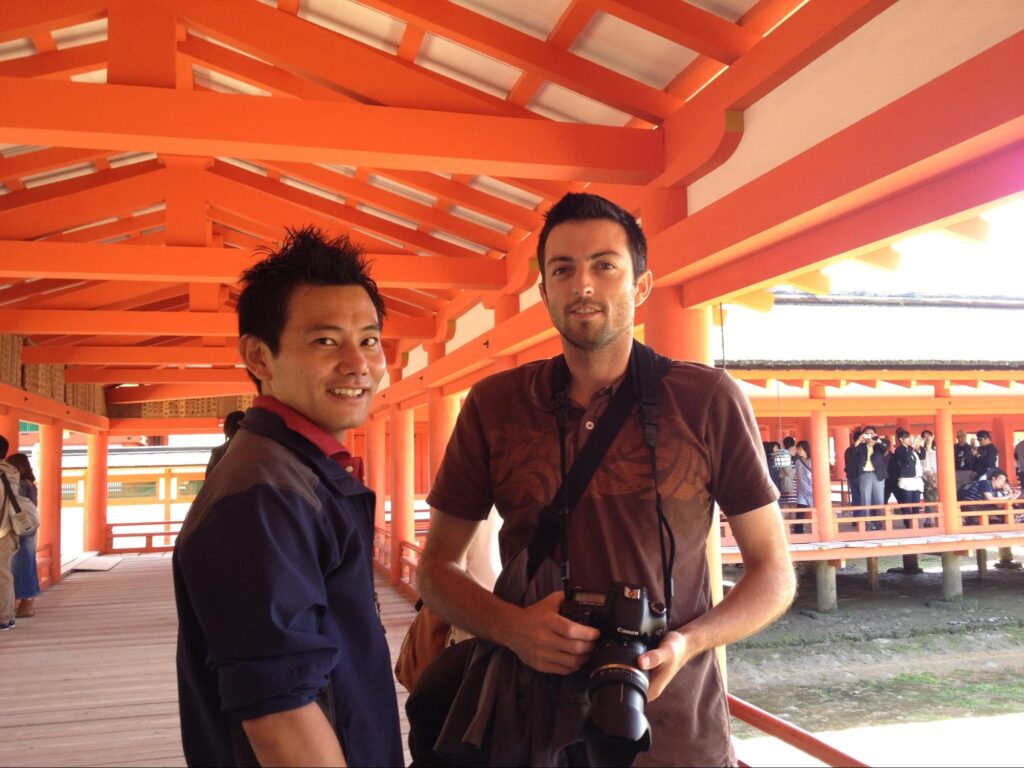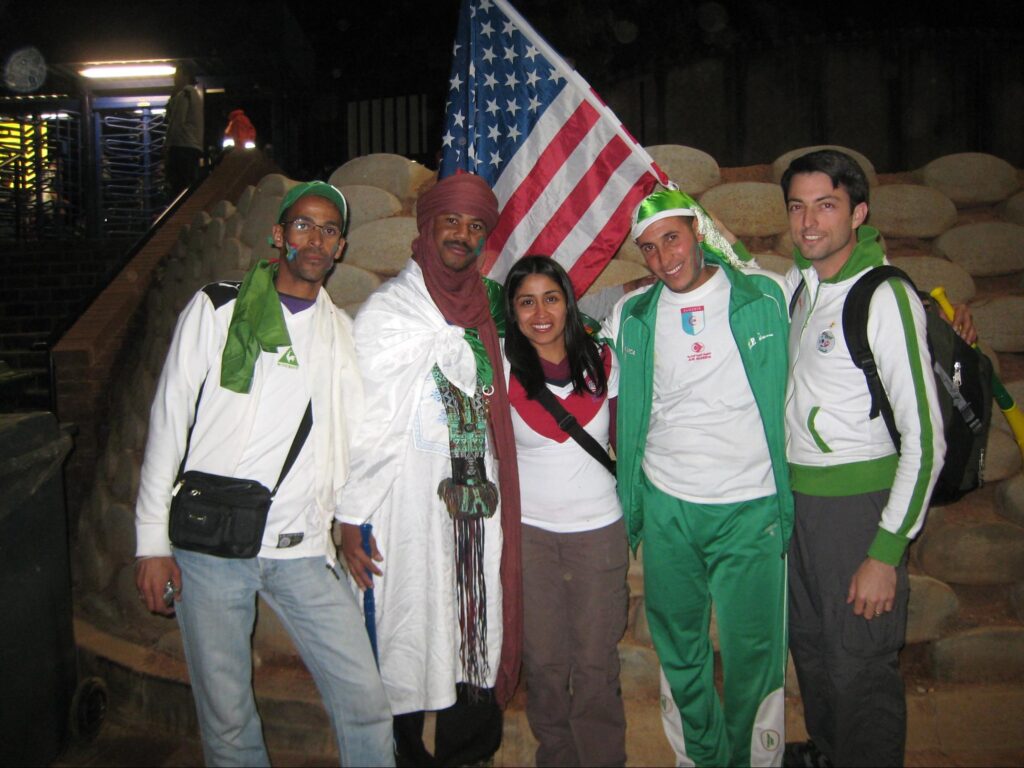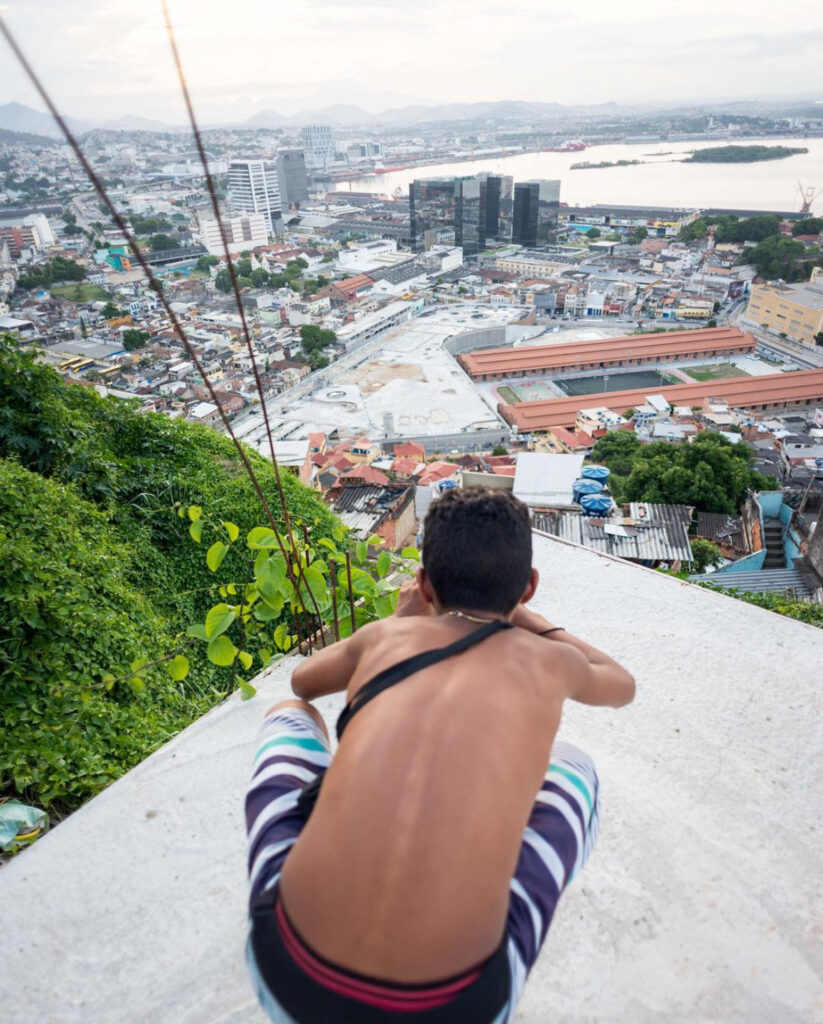
During COVID-19, the number of United States college students studying abroad dropped by over 90%. While these numbers have been estimated to recover in the coming years, educators emphasize that the transformative power of travel is more important than ever. The world is digitally interconnected, given the accessibility of information about almost any place on the planet. In countries such as Europe, travel is much more commonplace than in America; citizens of European nations are more likely to have traveled to five or more different countries compared to Americans.
Two professors at Point Loma Nazarene University who are experienced globe-trotters are Nathan Gibbs, associate professor of media communication, and Scott Bennett, professor of Spanish. Both are bilingual in English and Spanish and avid photographers who have traveled all around the world.
For Gibbs, traveling has been an invaluable source of knowledge, reflection and perspective. He has been to countries including Japan, Greece, Italy, Spain, Germany, France, Mexico and South Africa. In college, while volunteering during a welcome week for international students, he befriended a Japanese student. Being bilingual, Gibbs was familiar with the challenges of learning new languages and helped this student with his English.
Gibbs met a lifelong friend named Yoshitaka Hamawaki, who goes by “Yoshi.” Through bonding by practicing English, they became good friends and, after some time, Yoshi told Gibbs that his parents wanted to sponsor a trip that would take him to Japan.
This is how Gibbs was able to experience Japan and Japanese culture through the eyes of a local. He ate food, which he said was amazing, visited famous landmarks and saw a Kabuki play.
Gibbs noted a particularly special experience that began when they had visited Yoshi’s uncle in a fishing village. After catching a fish, Yoshi told Gibbs that his aunt would cook the same fish for them to eat.
Gibbs recalled a special meal in Japan, describing how Yoshi’s aunt prepared a family meal for them.
“We get in, we have this soup. And she literally cut the fish in half,” Gibbs said. “Top half, bottom half, then dropped them in the soup. As I stirred my soup, I saw the fish head, and he had the other half, which was a new experience for me.”
Gibbs described one of his achievements in speaking Japanese while on this trip.
“I went into a store, bought something. And she told me how much it was; I understood, and I paid the amount she said. [I] gave her the change and exchanged pleasantries. I left, and I was like, ‘Yes!’” he said.
This connection he made 25 years ago in college not only connected him with Yoshi but with a new culture, traditions and experiences he would have otherwise not had. Gibbs has made several more trips to Japan since then to visit Yoshi.
Some of the most significant travel experiences that have offered Gibbs new perspectives were when he visited what he describes as “humanity at its worst.”
Gibbs describes visiting these sites of historical tragedy such as the Nagasaki, Hiroshima bomb museums in Japan, the Apartheid Museum in South Africa and the holocaust memorial in Germany.
“We tend to hit those major ‘humanity at its worst’ places and reflect on all those things and what could be the worst possible moments,” Gibbs said. “But it is really powerful to see that stuff through their eyes, and it sticks with you. You have a different appreciation for people and things.”

The essential reasons to travel laid out by Gibbs are as follows:
“Learn a lot; it changes your view on everything if you are open to it. Take a break. Enjoy the moment. The world is awesome; this whole world is amazing. There are all these cool people that are different than you, and they think differently than you. There’s a lot to learn from people.”
Furthering his expert travel advice, he mentions to be smart and safe wherever you go and that having a travel credit card that offers points can help with the cost of traveling.
While Gibbs has traveled throughout Asia and Europe, Bennett has traveled extensively in Central and Latin America. Traveling began early for him as he was on a bus to visit Mexico after high school.
“For me, travel, at first, was always an escape … seeing different countries in Latin America and how each one is different – I was blown away,” Bennett said.
Each country spoke different languages and had different foods and different traditions, he said.
Throughout his trips, he has been to a World Cup soccer game, the Mayan ruins and crossed over to Tecal, a larger Mayan ruin. Going from Mexico to Guatemala was a moving experience for him.
“When we crossed over to Guatemala, it was like a dreamland,” Bennett said.
The elements of guerilla warfare in the area at the time made him that much more aware of his surroundings, he said. He felt that the people of Guatemala were welcoming, hospitable and humble and that in any country in Latin America, there is a different perception of time and family.

As an experienced traveler to areas below our border, Bennett urges students to travel to these areas that are so close to them. While there are dangerous areas in these countries, Bennett said, “Most of these people are hardworking people, not criminals or gang members.”
He said that if this is all people hear in the news, it discourages people from taking the chance to see a different part of the world.
“People in countries like Guatemala are more caring and honest than others,” he said.
His perception of travel goes beyond a fun vacation to a life changing experience.
“It could be one of the most rewarding things you could do,” Bennett said. “There’s a rawness and beauty to these places and people that is different – you never know what is going to happen.
His fundamental travel tips are to save money, take a trip to somewhere that interests you and to connect with people in an honest way. To live life on their terms, their time and experience a new place through the local culture and population.
As college students, money is not usually in abundance. However, there are reasons to make travel a priority. Wesley Aring, a fourth-year journalism major, is an avid roadtripper and studied abroad in Florence, Italy, in the fall semester of 2023.
“There’s so much difference in how people live and function their lives, and it’s beautiful to be a part of that and to explore it,” Aring said. “The world is large, and learning how small my perspective reinforced how important travel can be.”
Despite the logistical challenges of travel, both professors and Aring emphasized the invaluable opportunities travel presents, offering a new lens in which to understand life, culture and tradition that applies anywhere.
